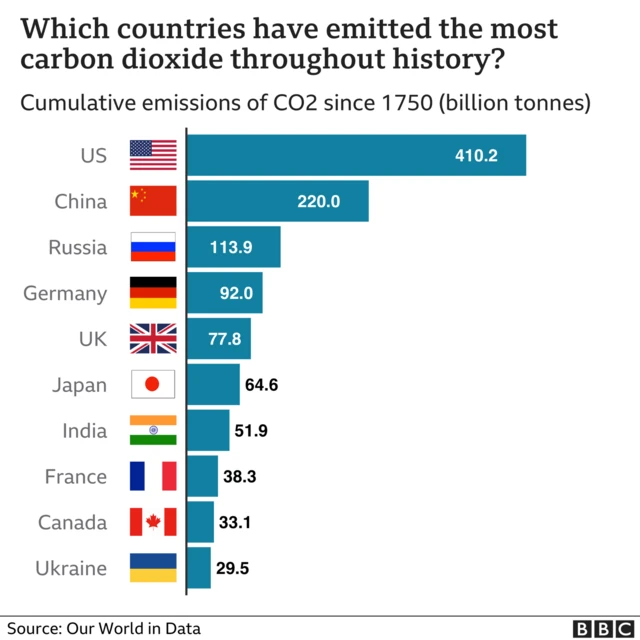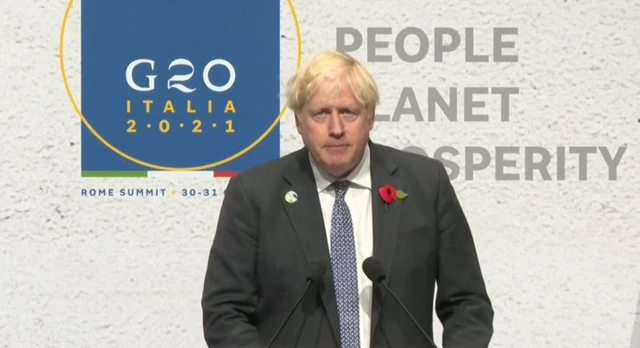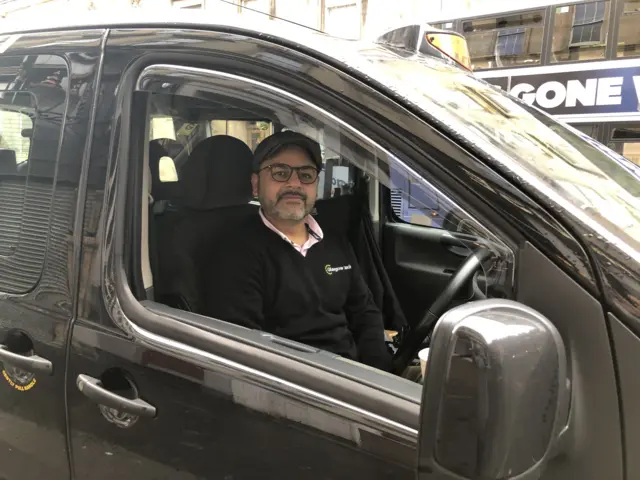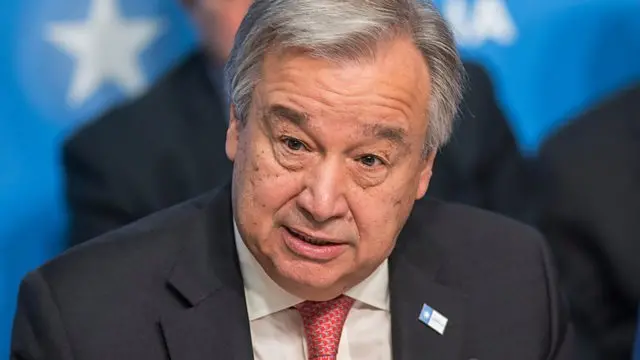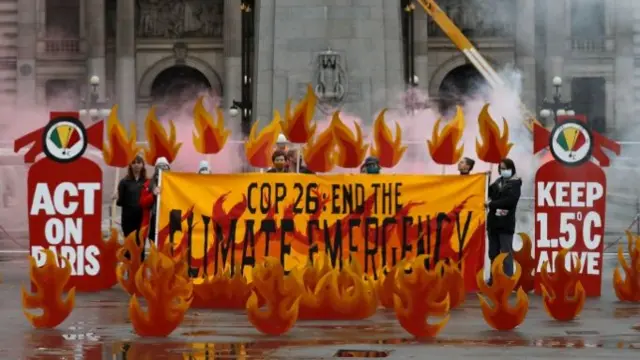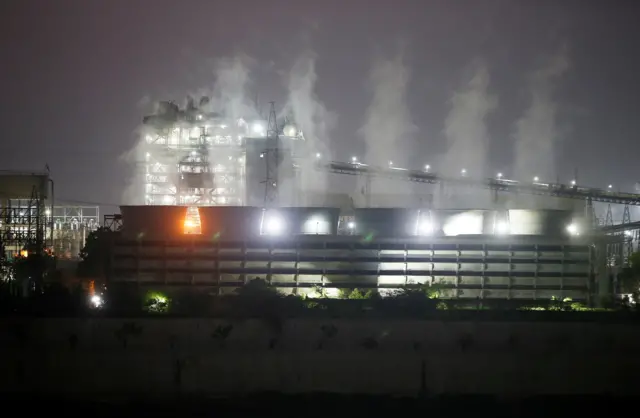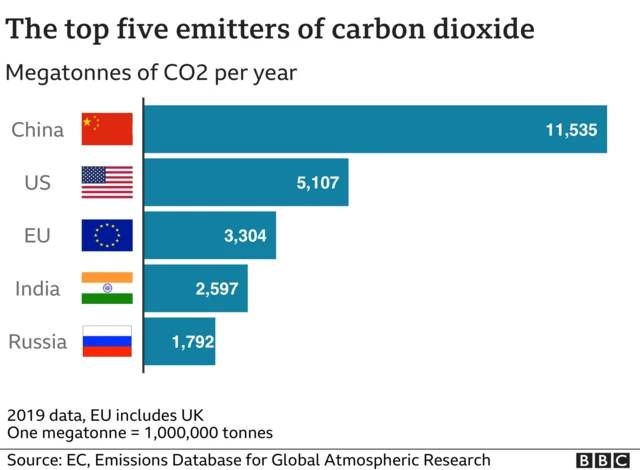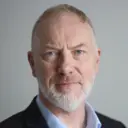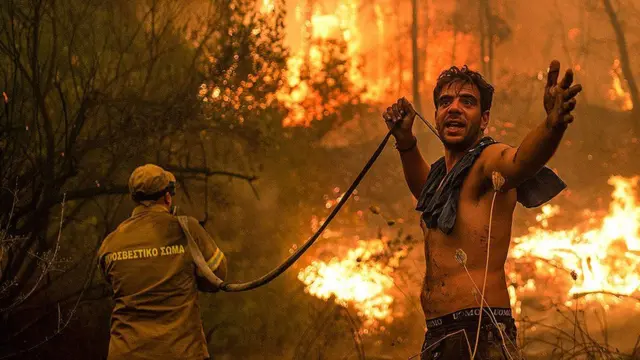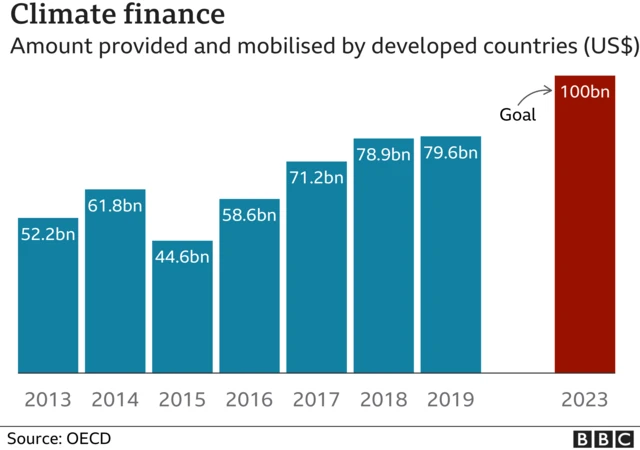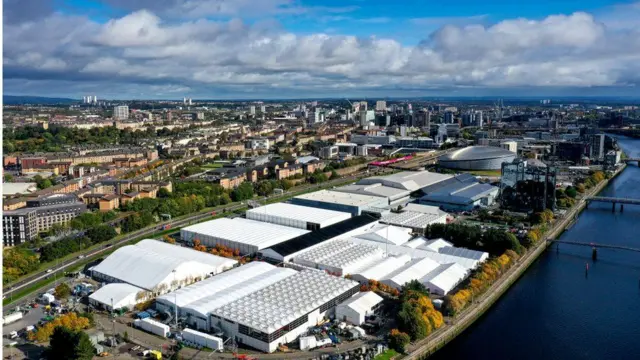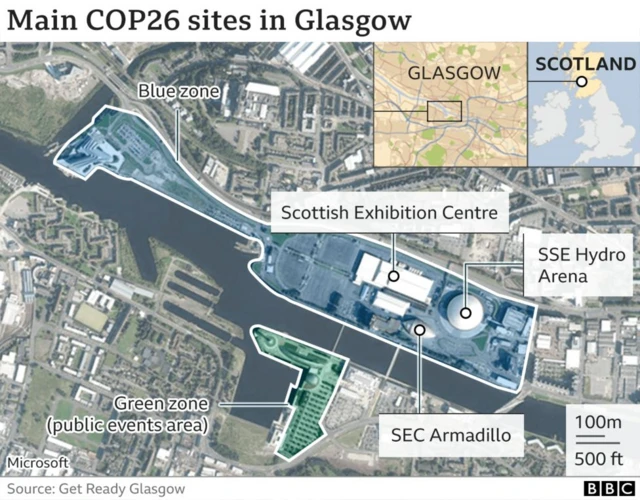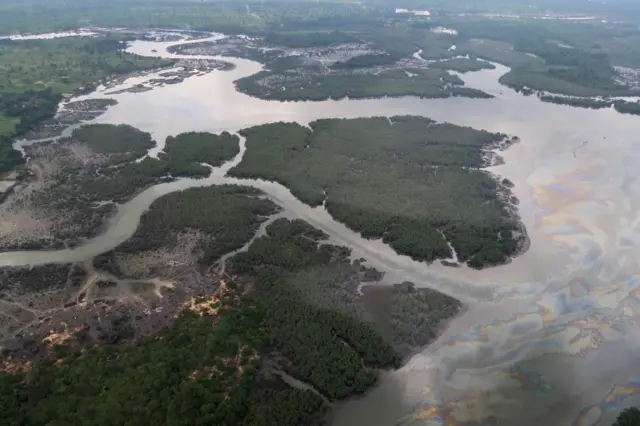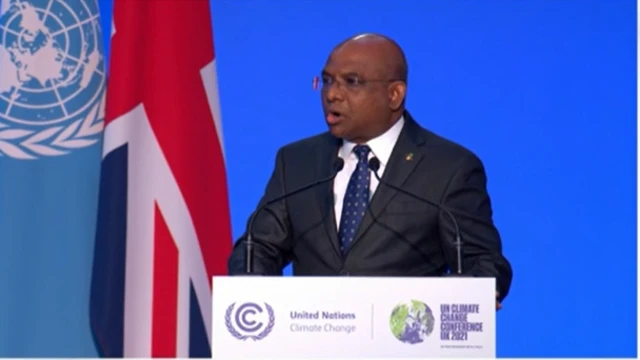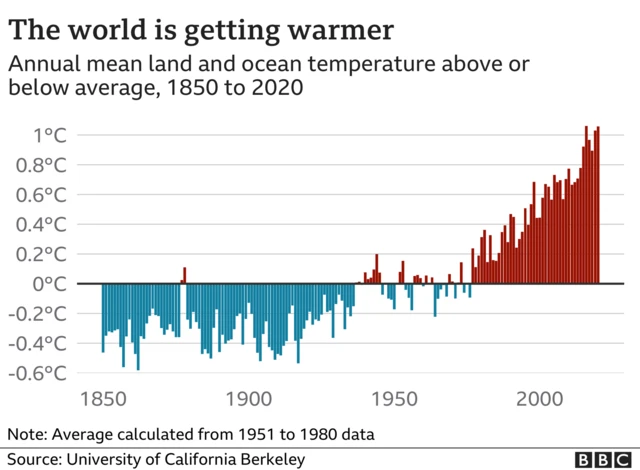Progress depends on 'courage and leadership'published at 17:09 GMT 31 October 2021
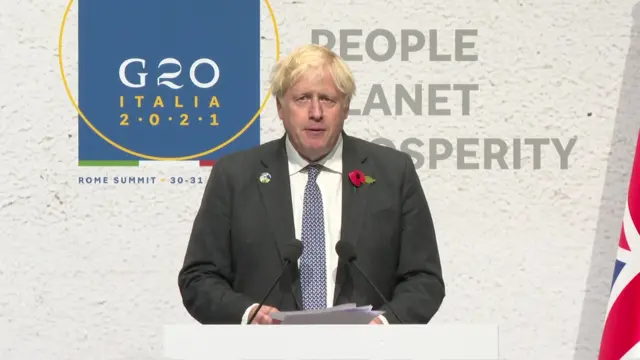
Boris Johnson is asked by the BBC's Laura Kuenssberg what chance he thinks there is of making progress with some 200 countries in Glasgow, when there hasn't been enough progress with just 20 countries in Rome.
He says his hopes depend on "the will, the courage and the leadership of everybody in the room" at COP26.
He adds that it is global citizens as well as other governments who are also demanding action.
That's true. Thousands of activists have already arrived in Glasgow to make their voices heard - and leaders from countries especially vulnerable to climate change are not mincing their words when it comes to calling for action.
Quote MessageThe pressure on world leaders is enormous. I hope they will agree. We have made reasonable progress, but it is not enough."
Boris Johnson


